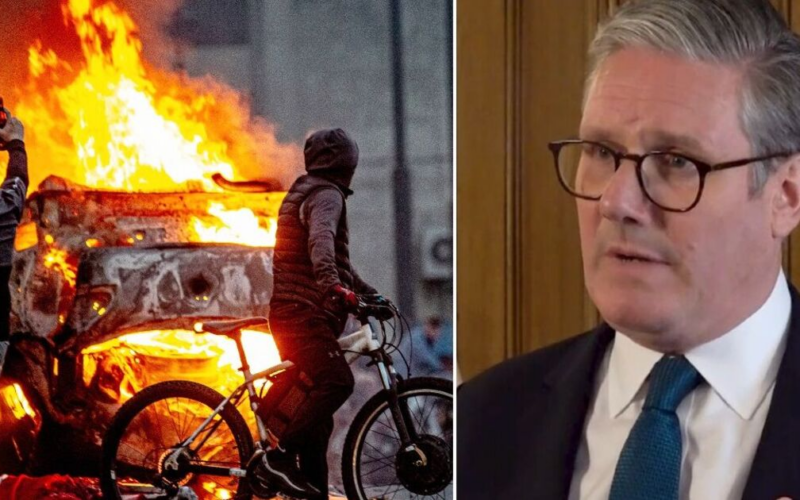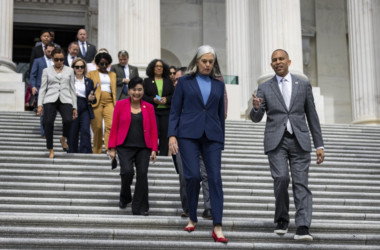As the dust settles from recent riots across the UK, Prime Minister Sir Keir Starmer’s handling of the crisis is under intense scrutiny, with critics arguing that his government’s focus on strong policing and rapid prosecutions has sidelined the genuine concerns that fueled the unrest.
The riots, which erupted in various towns and cities, have left a trail of destruction and highlighted deep-seated issues within these communities. While the government’s immediate response has been to crack down on rioters with swift justice, there is growing criticism that this approach ignores the root causes of the violence.
One Downing Street adviser noted that the situation could have been far worse, citing an attempt to set fire to a hotel with people inside. This dangerous escalation has been used to justify the government’s hardline response. However, this focus on law and order has come at the expense of addressing the underlying social and economic issues that many believe are the real drivers of the unrest.
Starmer, who was the chief prosecutor of England and Wales during the 2011 riots, has emphasized the importance of swift legal action in quelling violence. But this time, there is a notable absence of discussion from the government about the causes of the riots. Downing Street sources have admitted that there is a deliberate strategy to avoid addressing these issues, out of fear that acknowledging them might be seen as legitimizing the violence.
This reluctance to engage with the root causes has sparked criticism from within Starmer’s own party and beyond. Many argue that poverty, regional inequality, and social alienation are at the heart of the unrest, and that failing to address these issues will only lead to further discontent. Reports indicate that many of the affected areas have high levels of deprivation and house significant numbers of asylum seekers, creating a volatile mix of economic hardship and social tension.
The government’s approach has also been criticized for its dismissive attitude towards the broader implications of the riots. Chancellor Rachel Reeves, while on a visit to the US, downplayed the impact of the unrest on the UK’s international reputation, dismissing the scenes of violence as mere “thuggery.” This response has been seen as tone-deaf by many, particularly those who see the riots as a symptom of deeper societal problems.
In the aftermath of the riots, there are calls for a more comprehensive response that goes beyond punitive measures. Some are pushing for a renewed focus on local community engagement, similar to the approach used by Labour MPs in the past to combat the rise of far-right extremism. However, with the government under pressure to maintain fiscal discipline, there is skepticism about whether sufficient resources will be allocated to address these long-term challenges.
As Starmer navigates the political fallout from the riots, he faces a critical test. The government’s response to the immediate violence may have been effective in restoring order, but the real challenge lies in addressing the factors that led to the unrest in the first place. Without a serious effort to tackle these issues, there is a risk that the underlying tensions will continue to simmer, potentially leading to further outbreaks of violence in the future.
Starmer’s leadership will ultimately be judged not just on how he dealt with the riots, but on whether he can create lasting change in the communities that have been hardest hit. The stakes are high, and the pressure is on for the prime minister to deliver more than just a temporary fix.








